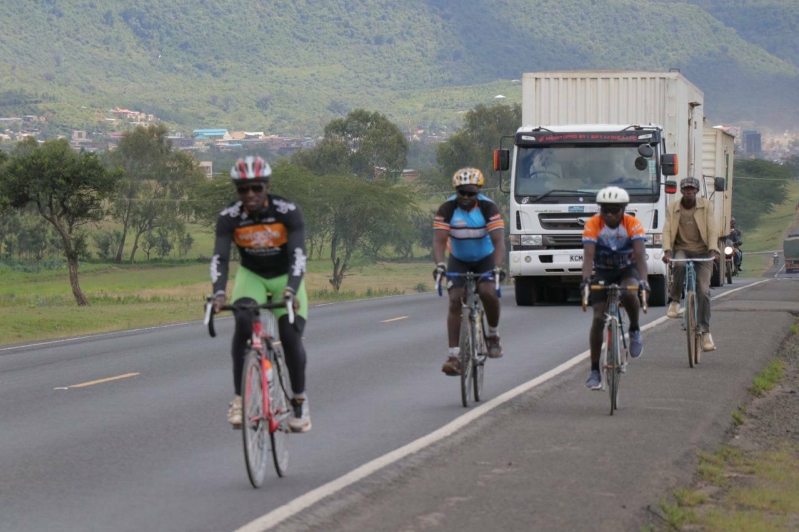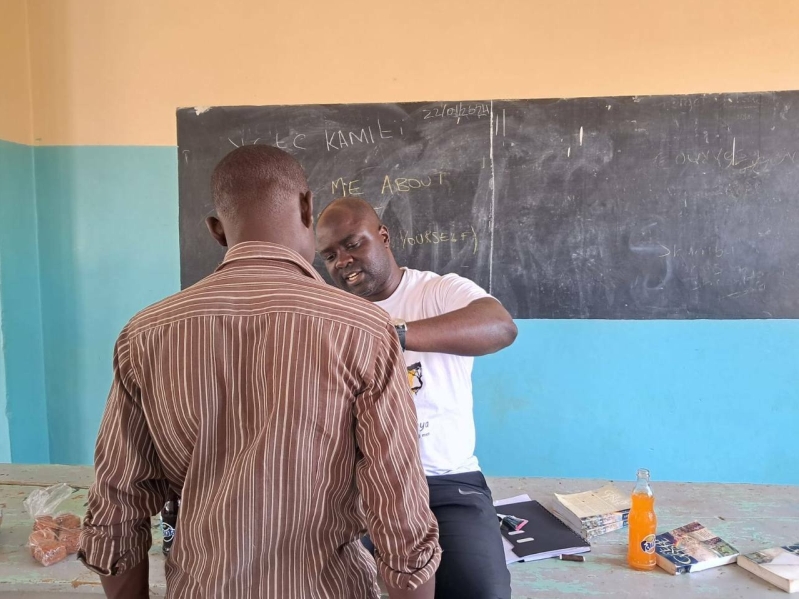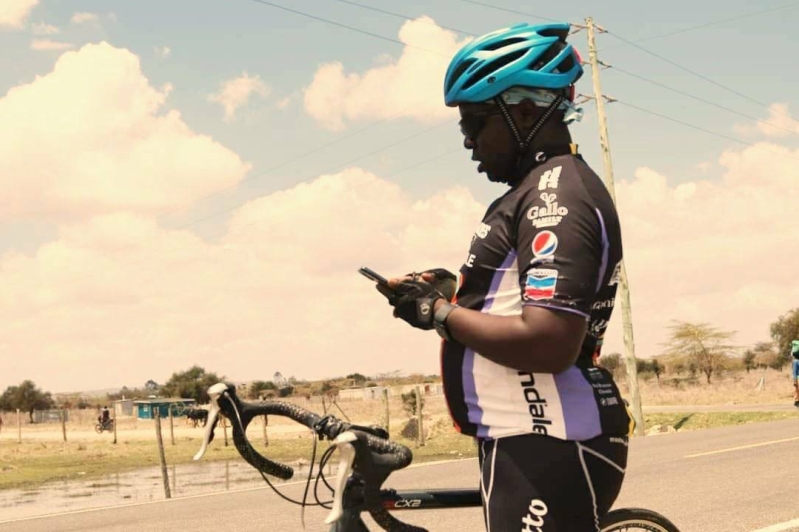
A three-bedroom bungalow 30 kilometers outside of Kenya’s capital, Nairobi, is providing a safe haven and a source of hope and transformation for young boys who have spent time in Kenya’s harsh juvenile prisons, the Youth Corrective Training Centres. Young boys between 12 and 17 years who face rejection at home have found solace and acceptance at the half-way house run by Lifesong Kenya, with transformational results.
The non-profit organization, founded by James Hawi in 2012, has impacted the lives of over 1,000 boys and young men in Kenya through mentorship, counseling, legal and reintegration assistance, and skills transfer.
For Hawi, the call to serve troubled youth has been a labor of love borne by his past and an incident with Kenya's justice system. Having lost his father when he had just become a teenager, he constantly battled low self-esteem and felt inadequate throughout his high-school and college years.
“After dropping out of college, I had to ask myself, ‘what do I have in my hands?’ Just like God used Moses, I chose to look at what I have as opposed to what I need,” Hawi told Christian Daily International in an interview.
The gift in his hands was a book club initiative which helped children from one of the underprivileged areas in Nairobi to read and write. The book club got the support of the parents but also landed Hawi in a police cell after one of his friends was arrested on suspicion of possession of drugs.
Though he was released after a few days without being charged, the experience behind bars changed his perspective on life in prison.
“One of the detainees told me that he turned to crime because he didn’t have a father to guide him and provide. I listened to him, hugged him and he started crying. He then told me, ‘I want you to go and talk to my son and tell him I am very sorry. Tell him not to get into crime’. Then other men started lining up to talk to me about their father issues and how that has contributed to their life decisions,” said Hawi.
The fatherless
The anecdotal evidence is backed by studies that paint a dim picture for children growing up in fatherless homes. A 2019 study titled “Fatherless Children and Crime Rates in Kenya” found that 70 percent of convicts in one of the main correctional facilities in Kenya come from broken families while 85 percent of “children with behavioral problems come from fatherless homes.”
Hawi’s experience over the last 12 years confirms that juvenile delinquency has its roots in dysfunctional or abusive homes.
“Most of the cases we have handled have started at the family setup. Maybe a father did not handle his son’s indiscipline issues well and instead resorted to calling the police,” said Hawi.
A report by the National Crime Research Center on ‘Perspective of Youth Criminality in Kenya, advocates for a multi-pronged approach to rehabilitate offenders.

“Counseling is one of the various approaches and should include family conferencing (reconciliation) besides personal therapy because it is crucial to understand the environmental surroundings of the offender that may attribute to crime for purposes of informed proper planning to bring about reform,” notes the report.
Family reconciliation at the centre
Family reconciliation, Hawi says, is a key pillar in Life Song’s process of reintegrating the young men back to the society after prison, especially when family members have distanced themselves from the boys.
“In some instances, I reach out to the parents or guardians, introduce myself and what we do, and request a meeting to reassure the family that their boy has gone through counseling and (that) he is reformed,” explained Hawi.
One of the parents, Kenneth Ochung, told Christian Daily International that his son was sentenced to serve 9 months in 2019 at a youth corrective training centre after he was found in possession of a stolen mobile phone.
“He got in the wrong company but I saw a significant difference after he came out. He had gone through sessions of healing and reconciliation and I could see he was remorseful. He is now a responsible young man with his own family,” said Ochung.
Lifesong facilitates the reconciliation sessions between the offender, the family and the aggrieved with the blessing of the corrective centres. The process has often led to the accuser dropping the charges on their own volition after seeing the growth and transformation of the offender. In some cases, however, the reconciliation takes longer or doesn’t happen even after the sentence is served.
“This is why we thought of having a halfway house…to host the boys after they leave the centres as we continue building their skills and reconciling them with their families,” said Hawi.
In addition to providing a safety net for the boys, the halfway house also hosts Christian discipleship sessions and basic computer lessons. The backyard of the halfway house is home to rabbits, goats, chicken, ducks and a small garden that Hawi and his team started as an income-generating initiative and as a resource to train the boys on small-scale farming.
“It hasn’t been easy (to run the activities). We have a few supporters and that’s why we keep looking for ways to be self-sustaining,” said Hawi.

Other activities include a cycling club where Lifesong mobilizes cyclists to tour the scenic area on bikes as well as raise funds for the organisation.
But for Hawi and the team at Lifesong, the greatest impact they see is the spiritual formation they see in the boys as a result of placing the gospel at the centre of the healing and restoration. The halfway house has now become a source of hope and inspiration to young men beyond the correctional facilities with Lifesong now expanding their programs to nearby schools and opening its doors to boys that have dropped out of school due to financial constraints.
“Despite the deep need and limited resources, I keep asking myself ‘what do I have in my hands’, and this keeps me going despite the challenges,” said Hawi.





